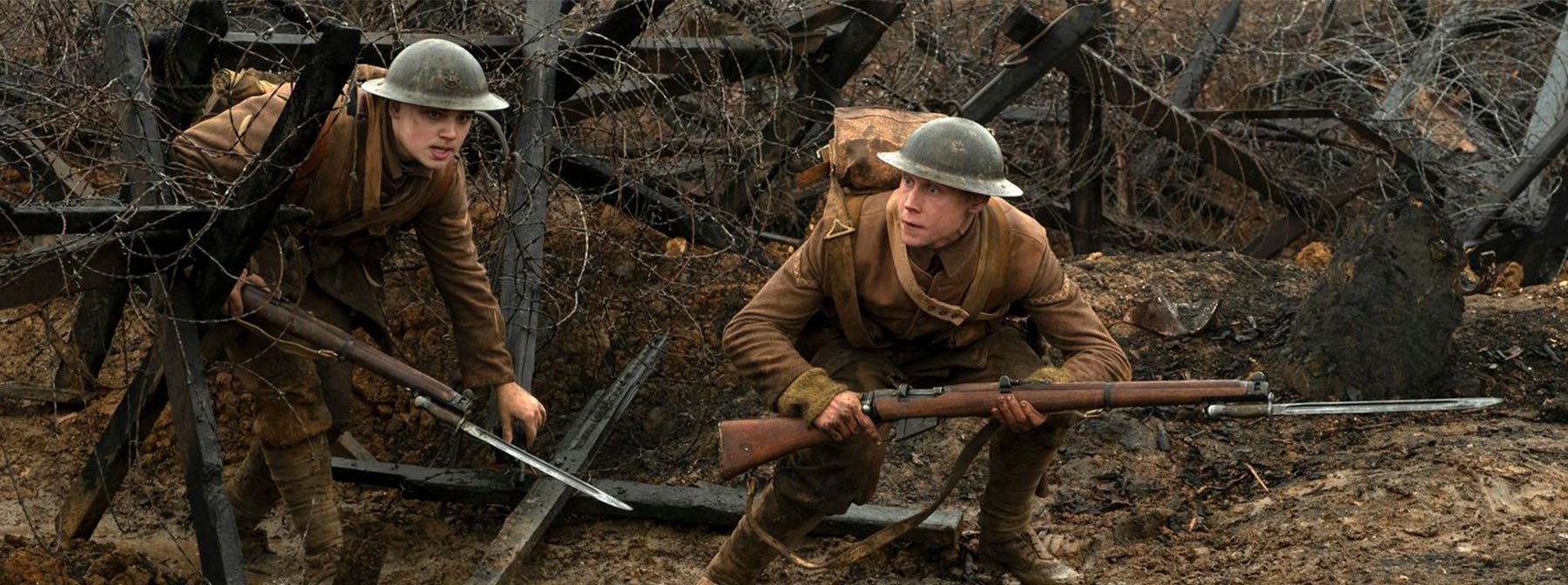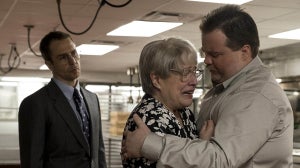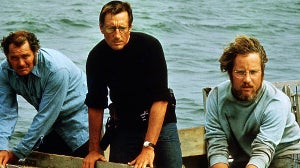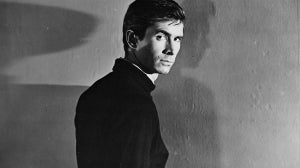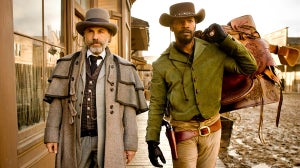
In this series, our team of writers take a look at each nominee for Best Picture, stating their case for why their choice should win.
Gripping. Impactful. Moving. Majestic. Phenomenal. These are just a few words that spring to mind when describing Sam Mendes' 1917.
In fact, it’s hard to find the right words to describe just how magnificent 1917 actually is. More than just a film, it's an unrelenting cinematic experience like nothing else we have seen before.
With cinematography by Roger Deakins, and editing by Lee Smith, 1917 is also nothing short of a technical achievement.
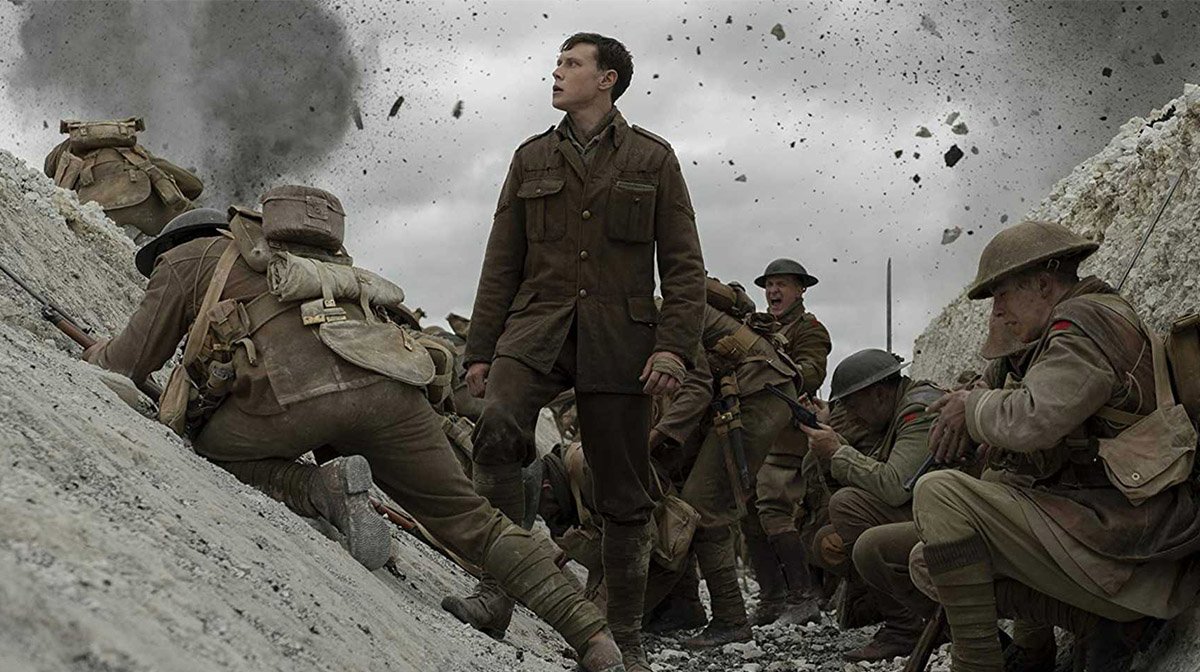
The film’s 10 nominations at the 92nd Academy Awards is a testament to just how incredibly impressive 1917 is.
It has already walked away with Best Drama at the Golden Globes, and won the Producers Guild of America (PGA) Award for Best Theatrical Motion Picture.
It’s probably worth adding that many of the PGA winners have gone on to walk away with the Best Picture statue at the Oscars, so that definitely plays to 1917's advantage.
However, there are many reasons why 1917 deserves to win the top prize; from Deakins’ beautiful cinematography, to Mendes' flawless direction.
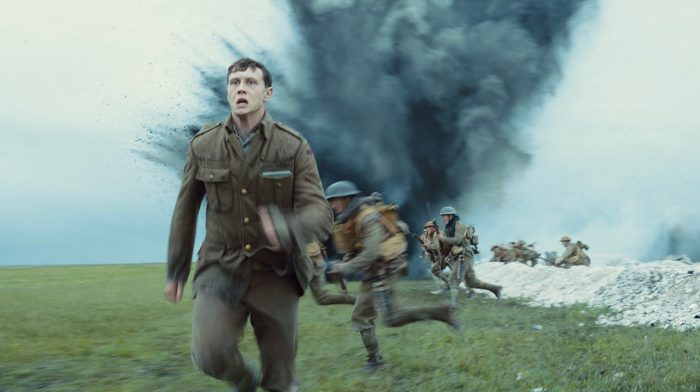
With 1917, Mendes has created a film that doesn’t stop for its entire run-time, and its a film which takes your breath away.
Of course, 1917 isn’t the first film to be shot in one continuous take. Even Alfred Hitchcock, the master of suspense himself, attempted to pull this technique off with Rope, but was limited by the technology of his day.
In recent years, Alejandro González Iñárritu’s Birdman was another film to take on one continuous take, but 1917 takes it to a whole new level. You become so lost in the film that you forget to look out for the hidden cuts.
But 1917 is more than just a gimmick, it’s a masterpiece in filmmaking.
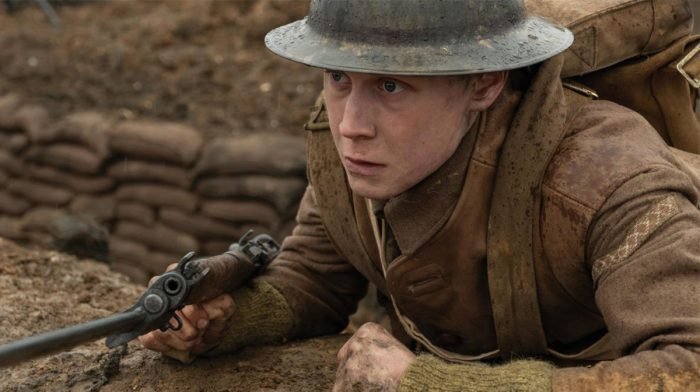
Many of us studied World War One at school, and we have seen it depicted in cinema since All Quiet On The Western Front; however, Mendes manages to fully immerse us in this hellish world from the very start.
1917 is an unflinching depiction of life in the trenches, recreated in all its grim glory. We hear every whizz of a stray bullet going above our heads, and we shake at every mortar bombing in the distance.
Is it any surprise that 1917 has been nominated for both Sound Editing and Sound Mixing at the Oscars? And the film’s score by Thomas Newman is perhaps his best work since Skyfall, his previous collaboration with Mendes.
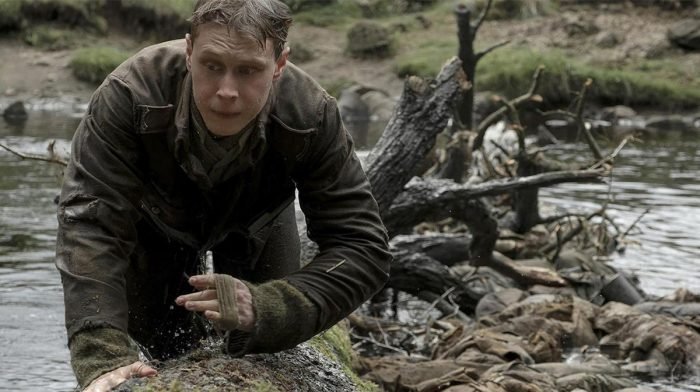
This is a film with a simple but effective premise which works in its favour. This is the story of two young British soldiers, Lance Corporals Will Schofield (George MacKay) and Tom Blake (Dean-Charles Chapman), who are racing against time in order to deliver a message calling off an attack doomed to fail.
From the very get-go we know that time is the real enemy. For 117 minutes the viewer and the characters barely pause for a breath. Even when the film’s action does slow down, we know it won’t be for long.
Watching 1917, we are always in a state of tension and holding our breath, just waiting for the inevitable to occur.
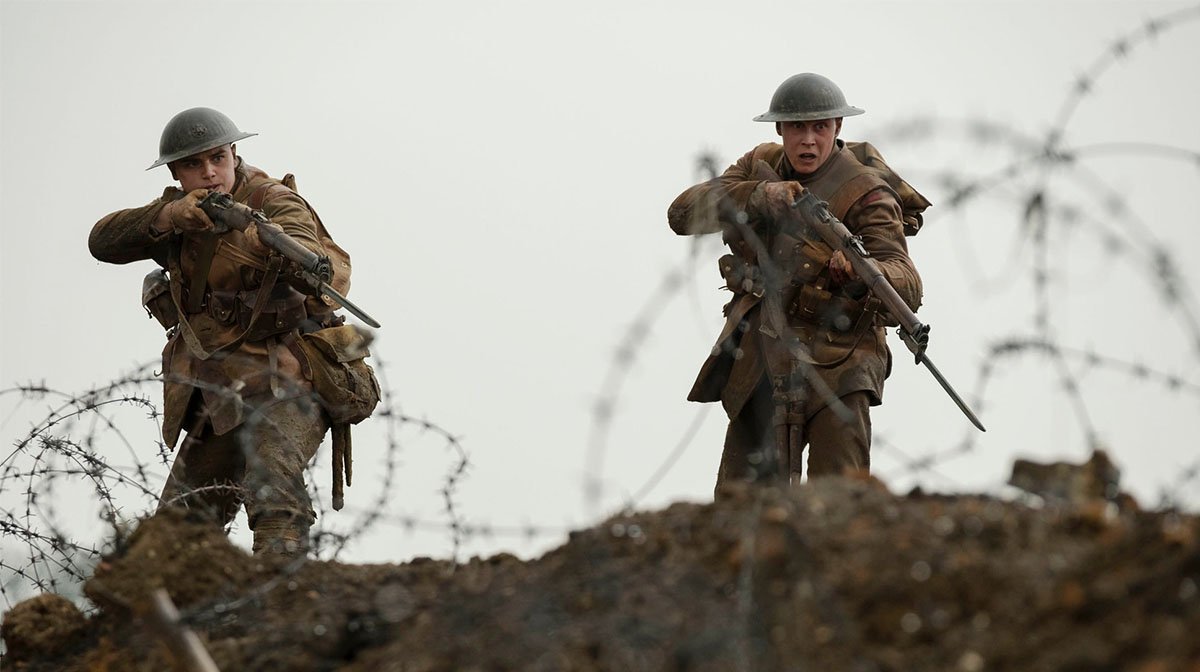
While many critics have highlighted the film’s cinematography and editing, it’s worth mentioning MacKay and Chapman’s performances which have been overlooked.
The film works because of these actors, and we become fully invested in the journey of these two characters.
MacKay and Chapman have great rapport with each other, and there are a few tender heartfelt moments between the two, including one particular scene that will reduce the viewer to tears.
This is a story of an unlikely friendship, and a depiction of how the strongest of bonds grow in the most dire situations.
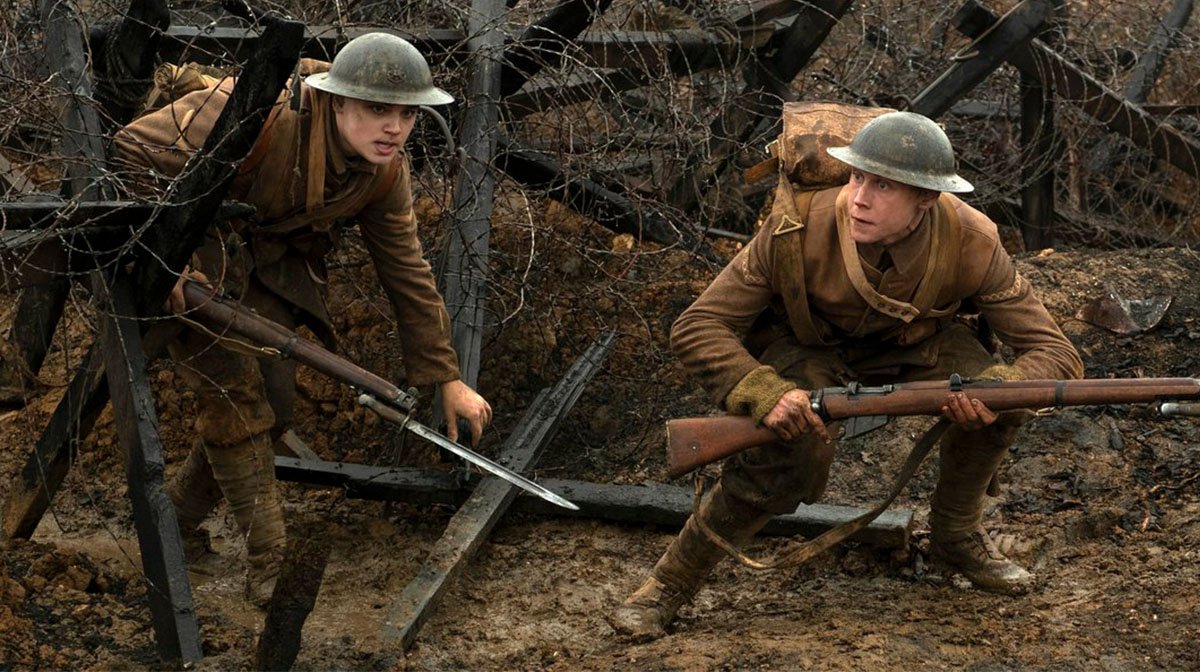
It’s not just MacKay and Chapman who shine here, several supporting performances also stand out with the likes of Richard Madden, Colin Firth, Benedict Cumberbatch and Andrew Scott appearing in crucial scenes.
1917 is a showcase of the best talent currently working in the British film industry. And, while these cameos feel slightly distracting in places, you are so caught up in the story and action that it’s not a distraction for too long.
In interviews, Mendes has discussed how his grandfather would tell him stories about his experiences of WW1. He could never shake off the stories that his grandfather told, and eventually he knew that he had to write 1917.
The film may not be specifically about Mendes’ grandfather, but it has certainly been inspired by his story, and it's a touching tribute to all those who fought in the Great War.
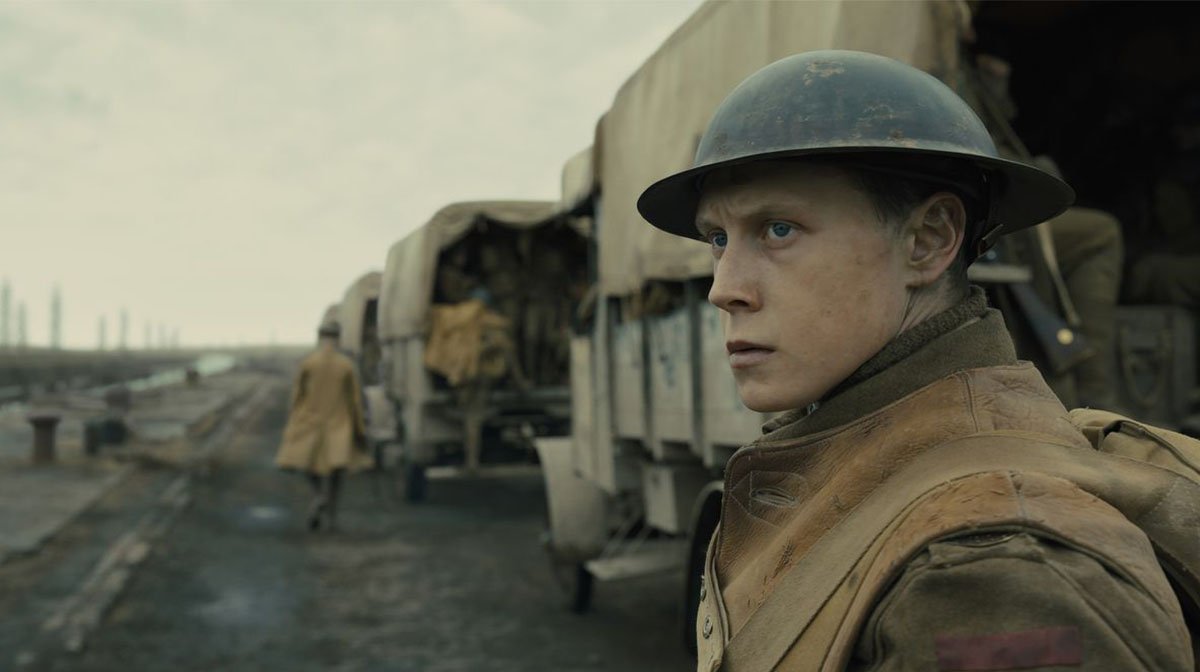
Pairing with fellow screenwriter Krysty Wilson-Cairns, Mendes has created a very relatable story of human endurance, and even though the film’s events take place in a world that feels almost alien to us, it’s story and themes are timeless.
1917 isn’t just a visual spectacle, or a cinematic magic trick, it’s a very poetic tale of friendship, and an incredible story of survival.
And, it is for this reason alone, that 1917 should win Best Picture.
The 92nd Academy Awards ceremony will take place on 9th February. In the UK you can tune at 1am Monday morning.
You can shop our range of the nominated films now.
For all things pop culture and the latest news, follow us on Instagram, Twitter, Facebook and TikTok.

